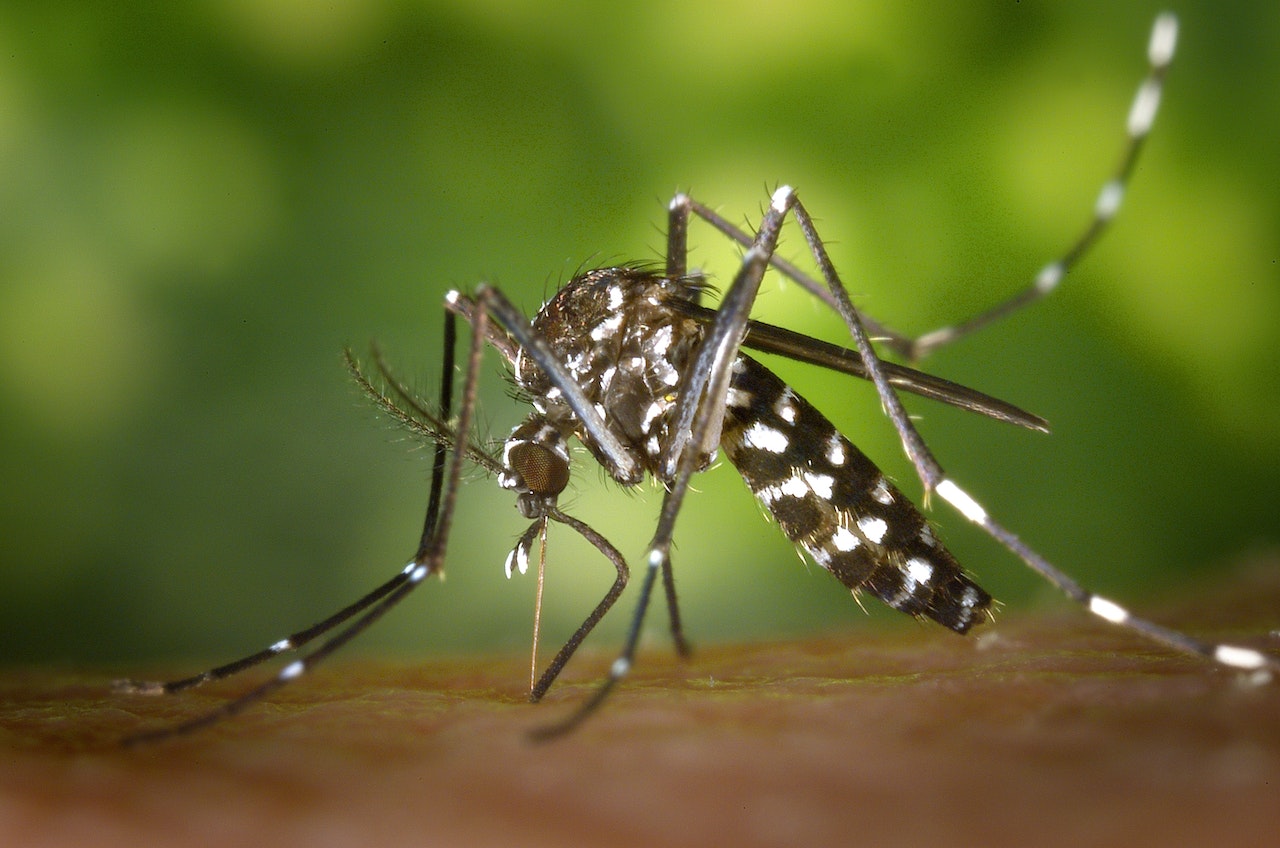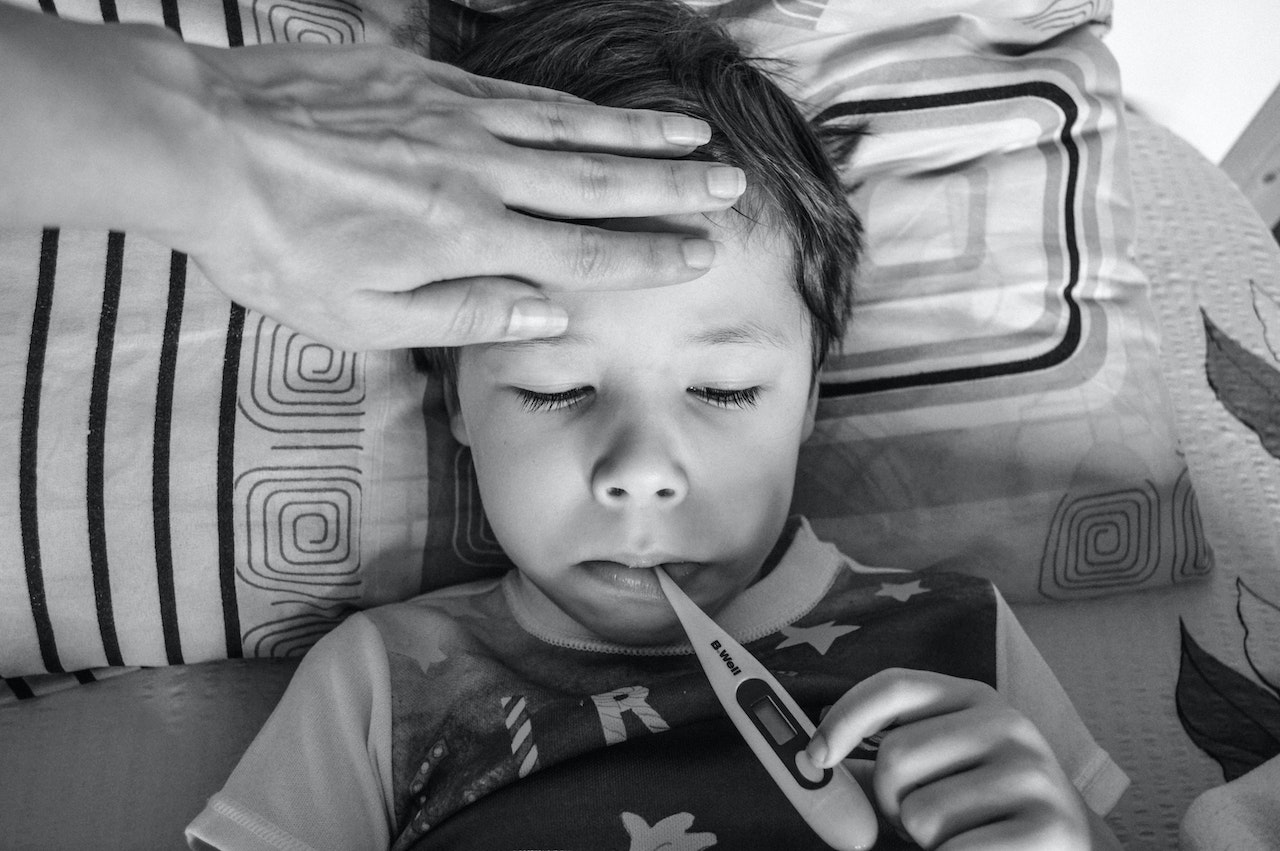Don’t belittle the bite of an Aedes mosquito! The number of dengue fever cases in Singapore is increasing, and the symptoms of dengue fever in some patients seem more severe too. Did you know that dengue fever has a peak season from June to October yearly?
Parents should look out for the warning signs of dengue fever, so we can attend to children or seek medical care accordingly.

What causes dengue and how is it transmitted?
The infected female Aedes mosquito transmits the dengue virus by biting a human. The person could be infected with one of the four different serotypes of dengue virus (DENV1 to 4) that is circulating the world. However, dengue fever is not contagious and does not spread from person to person.
Our local authorities have put up banners with colour codes in neighbours islandwide to let the community know if the estate is a “hotspot” with dengue cases. Also, you can find out if you are living in a Dengue cluster in Singapore – be sure to take the necessary precautions to protect yourself and your family against dengue.
Symptoms of dengue fever
While infected persons may be asymptomatic, do look out for these possible signs of dengue fever. They usually appear 4 to 7 days after being bitten (ranging from 3 to 14 days):
- Sudden onset of fever for 2 to 7 days
- Severe headache with pain behind the eyes
- Skin rashes
- Joint and muscle pain
- Nausea and vomiting
- Mild bleeding (e.g. nose or gum bleed, or easy bruising of the skin)
If you suspect that you or your child has dengue fever, seek medical attention immediately. The doctor will request for a blood test to assess the infected person’s platelet count too.
Do not ignore these severe warning signs of dengue
It’s true that dengue fever can be life-threatening! For some, it may lead to dengue haemorrhagic fever or dengue shock syndrome. Symptoms of severe dengue may include:
- Bleeding (e.g. gum or nose bleed, black stool, blood in vomit or stool)
- Persistent vomiting
- Abdominal pain or tenderness
- Restlessness or lethargy
Warning signs usually begin 1 to 2 days after the fever has subsided. If you notice any of these more serious symptoms, seek medical attention right away. Severe dengue is considered an emergency and requires immediate medical support.

What to do if you or your child has dengue?
Consume plenty of fluids to stay hydrated, take paracetamol to relieve fever and aches and be sure to get plenty of rest to aid recovery. For children, you may wish to take a cold wet cloth to sponge them to bring down the fever. If symptoms are mild and manageable, recuperating at home is possible. However, if you notice or experience the above warning signs, do seek immediate medical care. If your child still has funds in his CDA account, you may be able to use the money at some paediatricians, hospitals and clinics to subsidise this additional expense.
Some folks may have heard that drinking papaya leaf juice helps to treat dengue. However, there’s no scientific support and is purely an old wives’ tale. Unfortunately, there is no medication or anti-viral treatment for dengue fever, dengue haemorrhagic fever and dengue shock syndrome yet. In more severe cases, patients may be hospitalised for emergency treatment options such as fluid and electrolyte replacement, and/or blood transfusions.
Is there a dengue vaccine in Singapore?
Parents can also take some precautions to prevent aedes mosquito breeding at home or use mosquito repellent to protect your loved ones. A dengue vaccine has been approved by the Health Sciences Authority (HSA) for individuals aged 12 to 45 years and is available in Singapore. However, individuals should consult their doctor if they wish to find out more about their suitability for the dengue vaccine.
Can I claim insurance for dengue fever?
Firstly, you will need to know what your existing insurance plans coverage are, if any. Your financial advisor would be the best person to advise about the limitations or possible insurance claims for dengue fever.
If you or your children do not have any life or hospitalisation plans that cover dengue fever and the medical bills that incur, there are dengue insurance plans to consider. In fact, there are also free dengue insurance in Singapore offered by the major companies with terms and conditions that apply.
Know that you are not alone when it comes to family financial planning and our children’s health. Feel free to get in touch for a complimentary consultation to find out how you can protect against the uncertainties.



